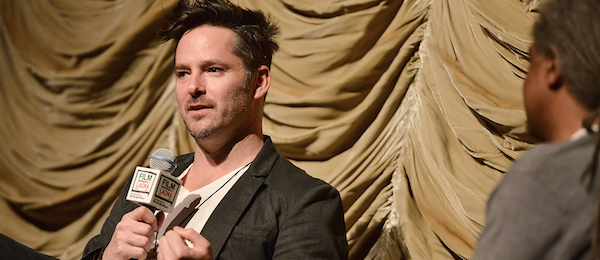No Happy Endings. Crazy Heart Director Scott Cooper on Bleak Themes and Flawed Characters

Scott Cooper knows his films don’t always go down easy.
Once, on the way out of an advance screening of his second feature, Out of the Furnace, he overheard two women discussing their impressions of the film. “One turned to the other and said, ‘Ooooo, his wife has to live with that?’”
Cooper’s first film, 2009’s Crazy Heart, was the subject of last night’s Film Independent at LACMA screening celebrating 30 years of the Film Independent Spirit Awards. Crazy Heart was nominated for three Spirits in 2010 and won two: Best Male Lead for Jeff Bridges’ portrayal of washed up country star Bad Blake and Best First Feature. The film also won two Oscars, two Golden Globes and two Grammys.
But not even such a highly esteemed picture was immune to test screening torture.
“You would ask the audience: What can make the film better?” said Cooper, then quoting his test screening audience: “‘Well, it would be better if Jeff didn’t lose the kid, and if he and Maggie Gyllenhaal got together at the end.’”
Cooper says he’s gotten used to these critiques. “People want to feel really good when they leave the theater. I think they want to feel uplifted, and perhaps my films don’t tend to do that.”
Film Independent curator Elvis Mitchell made the connection between Cooper’s less-than-cheery endings and his affinity for a particular strand of American literature known for characters who can’t shake their self-destructive tendencies.
Cooper confirmed the link. His father studied under William Faulkner for a time at the University of Virginia and saw to it that his son was well read in the author’s oeuvre. “I tend to find flawed characters more interesting because they seem more human,” said Cooper, “And it starts in that great southern tradition of writing and it tends to always seep into my work, for better or for worse.”
For the country western world of Crazy Heart, music was another major source of inspiration. “There’s a song by Merle Haggard that I would listen to a lot called Kern River, about the loss of a loved one who drowned in the Kern River. A decidedly not uplifting song, which seemed to fit tonally with both this film and my last one.”
Cooper said if it weren’t for organizations like Film Independent, his flinty brand of filmmaking might never have reached an audience. “When you have Film Independent, where people are really there for you when you’re making very difficult films, it’s comforting because you know you have people who support your taking big risks.”
In his dogged pursuit of Crazy Heart’s leading man, Cooper took a huge risk. He said from the outset that he wouldn’t make the film without Bridges starring, and he stood by his word.
“I was reading a series of interviews with the Coen brothers in which they said that when they wrote The Big Lebowski for Jeff, they sent it to him, and it took a year for Jeff to read it. And I swear to you this is the truth: It took a year for Jeff to read the [Crazy Heart] script.”
“I had two babies, no money, nothing. My wife was like: ‘Are you sure somebody else can’t play this part?’ ‘No, honey, It’s Jeff.’”
Eventually, Bridges came aboard, and his performance was worth the wait. Cooper said his willingness to be vulnerable—as in the scene when he drunkenly searches for a lost child in shopping mall—is what sets him apart as a performer.
“Jeff’s confidence to not only play that scene and to play it as emotionally truthful as he did, but to be 60 years old and to allow a first time filmmaker to shoot you with your shirt off or vomiting in your underwear…” Cooper trailed off, shaking his head.
When production wrapped after 24 days of shooting in Texas, Los Angeles and New Mexico, Cooper felt relief with a tinge of melancholy. “I just thought, ‘Wow, I’ll never have this experience again.’ You only make a first film once.”
Mitchell noted that Cooper stepped away from the editing room to be with Film Independent Wednesday night. He’s currently in post-production on his third feature, Black Mass. The film stars Johnny Depp as real-life Boston criminal and FBI informant Whitey Bulger and is set for a September release.
Cooper already is hearing from his critics.
“My daughter, who is now eight, as I’m listening to some of the score, she’ll walk in and say: ‘Whoa, Daddy, did somebody just die?’”
Tom Sveen / Film Independent Blogger